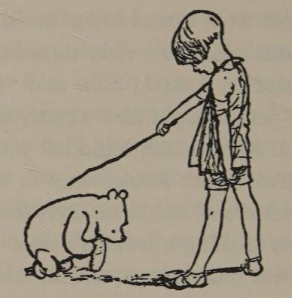BEATRICE: He wears his faith but
as the fashion of his hat; it ever changes with the
next block.William Shakespeare (1564-1616) English dramatist and poet
Much Ado About Nothing, Act 1, sc. 1, l. 73ff (1.1.73-75) (1598)
(Source)
Quotations about:
faithfulness
Note not all quotations have been tagged, so Search may find additional quotes on this topic.
Then he was faithful too, as well as amorous;
So that no sort of female could complain,
Although they’re now and then a little clamourous,
He never put the pretty souls in pain;
His heart was one of those which most enamour us,
Wax to receive, and marble to retain:
He was a lover of the good old school,
Who still become more constant as they cool.
In all such oaths we are not to attend to the mere form of words, but the true design and intention of them.
[Semper autem in fide quid senseris, non quid dixeris, cogitandum.]
Marcus Tullius Cicero (106-43 BC) Roman orator, statesman, philosopher
De Officiis [On Duties; On Moral Duty; The Offices], Book 1, ch. 13 (1.13) / sec. 40 (44 BC) [tr. Cockman (1699)]
(Source)
(Source (Latin)). Alternate translations:
In obligations of faith, it is the meaning always, not the words that are to be considered.
[tr. McCartney (1798)]
In a promise, what you thought, and not what you said, is always to be considered.
[tr. Edmonds (1865)]
In a promise, what you mean, not what you say, is always to be taken into account.
[tr. Peabody (1883)]
A promise must be kept not merely in the letter, but in the spirit.
[ed. Harbottle (1906)]
In the matter of a promise one must always consider the meaning and not the mere words.
[tr. Miller (1913)]
You should always, in a matter of trust, think of what you mean, not of what you say.
[tr. Edinger (1974)]
Translation is like a woman. If it is beautiful, it is not faithful. If it is faithful, it is most certainly not beautiful.
PROTEUS: ’Tis true. O heaven, were man
But constant, he were perfect; that one error
Fills him with faults, makes him run through all th’ sins;
Inconstancy falls off ere it begins.
Dearer is love than life, and fame than gold;
But dearer than them both, your faith once plighted hold.Edmund Spenser (c. 1552-1599) English poet
The Faerie Queene, Book 5, Canto 11, st. 63 (1589-96)
(Source)
There is no fellowship inviolate,
no faith is kept, when kingship is concerned.[Nulla sancta societas
Nec fides regni est.]Ennius (239-169 BC) Roman poet, writer [Quintus Ennius]
Fragment 402-3 [tr. Miller]
(Source)
Quoted in Cicero, De Officiis, Book 1, ch. 8, sec. 26 (scaen. 404 Vahlen), speaking of Julius Caesar.
Alt. trans.:
- "To kingship belongs neither sacred fellowship nor faith."
- "No society is sacred, nor faith of empire." [tr. Johnson (1828)]
- "There is no holy bond, and no fidelity / 'Twixt those who share a throne." [Source]
- "Where the throne's shared, there cannot be good faith." [Source]
… a noble aim,
Faithfully kept, is as a noble deed,
In whose pure sight all virtue doth succeed.William Wordsworth (1770-1850) English poet
“Brave Schill! By Death Delivered, Take Thy Flight” (1809; pub. 1815)
(Source)
Sometimes misquoted "is a noble deed".
But, of course, ceasing to be ‘in love’ need not mean ceasing to love. Love in this second sense — love as distinct from ‘being in love’ — is not merely a feeling. It is a deep unity, maintained by the will and deliberately strengthened by habit; reinforced by (in Christian marriages) the grace which both partners ask, and receive, from God. They can have this love for each other even at those moments when they do not like each other; as you love yourself even when you do not like yourself. They can retain this love even when each would easily, if they allowed themselves, be ‘in love’ with someone else. ‘Being in love’ first moved them to promise fidelity: this quieter love enables them to keep the promise. It is on this love that the engine of marriage is run: being in love was the explosion that started it.
C. S. Lewis (1898-1963) English writer, literary scholar, lay theologian [Clive Staples Lewis]
Mere Christianity, “Christian Marriage” (1952)
(Source)
Pooh wondered if being a faithful Knight meant that you just went on being faithful without being told things.
A. A. Milne (1882-1956) English poet and playwright [Alan Alexander Milne]
House at Pooh Corner, ch. 10 “An Enchanted Place” (1928)
(Source)










